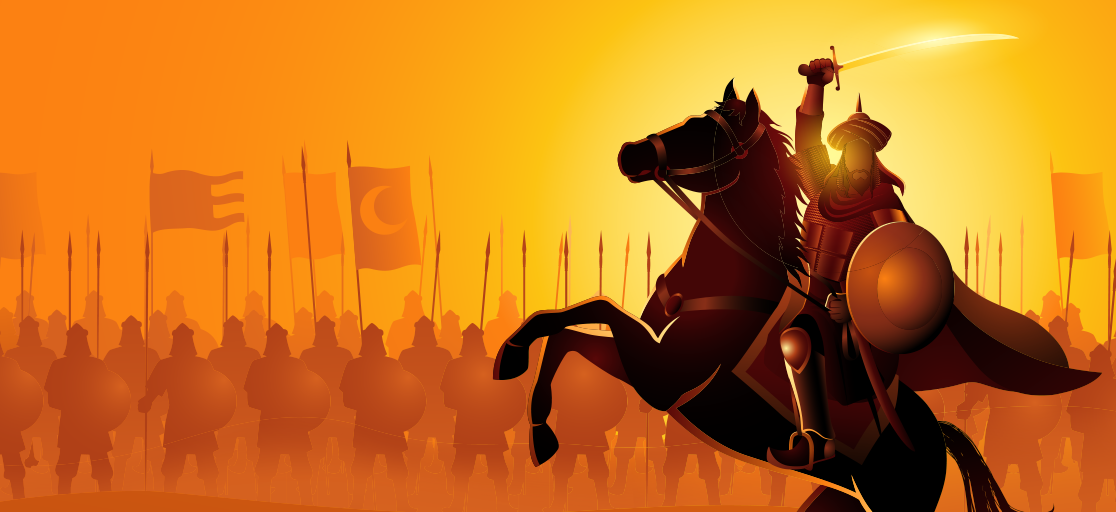We have always been intrigued by the legacies of Arab leaders. The Arab world has a long and rich history, and throughout the ages, it has produced some of the most remarkable leaders who left a lasting imprint on their societies and the world as a whole. Studying the lives and accomplishments of these leaders is essential for understanding the Arab world and its contribution to civilization. In this article, we will explore the legacies of Arab leaders, their impact on society, and why we should continue to study them.
The Importance of Studying Arab Leaders
At a time when the world is becoming increasingly interconnected, it is more important than ever to understand the history and culture of the Arab world. Arab leaders have played a critical role in shaping the region’s history and culture and have left an indelible imprint on the world. Studying Arab leaders helps us to understand their contributions to society, their leadership styles, and how they navigated complex political and social environments. It also helps us to appreciate the diversity of the Arab world and the many different cultures and traditions that exist within it.
Famous Arabians and their Contributions to History
The Arab world has produced many famous individuals who have made significant contributions to history. One such person is Ibn Khaldun, a 14th-century scholar who is widely regarded as the founder of sociology and historiography. His book, “The Muqaddimah,” is considered a masterpiece of Arabic literature and is still studied today. Another famous Arab is the mathematician Al-Khwarizmi, who is known for his contributions to algebra and the decimal system. Without his work, modern mathematics and computing might not exist as we know them today.
The Legacy of Arab Leaders in Science and Technology
Arab leaders have made significant contributions to science and technology throughout history. One such leader is Al-Razi, a physician, and philosopher who is known for his contributions to medicine and chemistry. He is considered one of the greatest physicians in Islamic history and is credited with developing many medical treatments and techniques. Another notable Arab leader is Al-Idrisi, a geographer who created one of the most comprehensive maps of the world at the time. His work helped to shape our understanding of the world’s geography and influenced future explorers and cartographers.
Arab Leaders in the Arts and Literature
The Arab world has a rich literary and artistic tradition, and Arab leaders have played a significant role in shaping it. One such leader is Al-Mutanabbi, an Arab poet who is widely regarded as one of the greatest poets in Arabic literature. His poetry is still studied and admired today for its depth and complexity. Another notable Arab leader in the arts is Fairuz, a Lebanese singer who is known for her beautiful voice and her contributions to Arab music. Her music has been influential in shaping the modern Arab music scene.
The Role of Women in Arab Leadership
While the role of women in Arab leadership has been limited historically, there have been many remarkable women who have made significant contributions to their societies. One such woman is Tawakkol Karman, a Yemeni journalist and politician who was awarded the Nobel Peace Prize in 2011. She played a critical role in the Arab Spring and is a leading voice for human rights and democracy in the Arab world. Another notable woman in Arab leadership is Sheikha Lubna Al Qasimi, who served as the Minister of Foreign Trade in the United Arab Emirates. She is widely regarded as one of the most influential women in the Arab world and has been a strong advocate for women’s rights and empowerment.
The Impact of Arab Leaders on Modern Society
The impact of Arab leaders on modern society is profound and far-reaching. The contributions of Arab leaders in science, technology, literature, and the arts have shaped our understanding of the world and influenced our culture and traditions. Arab leaders have also played a critical role in politics and diplomacy, shaping the course of history and influencing international relations. The legacy of Arab leaders is evident in our world today, and their contributions should not be overlooked or forgotten.
Famous Arabic People Who Changed the World
Arabic people have made significant contributions to the world throughout history. One such person is Prophet Muhammad, The Messenger of Allah and one of the most influential figures in human history. His teachings have shaped the course of world history and have had a profound impact on religion, culture, and society. Another famous Arabic person is Ibn Sina, a philosopher and physician who is known for his contributions to medicine and philosophy. He is widely regarded as one of the greatest thinkers in Islamic history and his work has influenced Western philosophy and medicine.
Conclusion – Why We Should Continue to Study Arab Leaders and their Legacies.
The legacies of Arab leaders are an essential part of the world’s history and culture. Studying Arab leaders helps us to understand the contributions of the Arab world to civilization and appreciate the diversity of its many cultures and traditions. Arab leaders have made significant contributions to science, technology, literature, and the arts, and their impact on modern society is profound. By studying the lives and accomplishments of Arab leaders, we can gain a better understanding of the world and our place in it. We encourage you to continue learning about the legacies of Arab leaders and their contributions to the world, for example, A notable Arab leader we have previously examined is Salahudin. To read more into his life and achievements, we invite you to read his story here. By doing so, we can gain a richer understanding of our shared history and culture and appreciate the many different perspectives and traditions that make up our global community.








